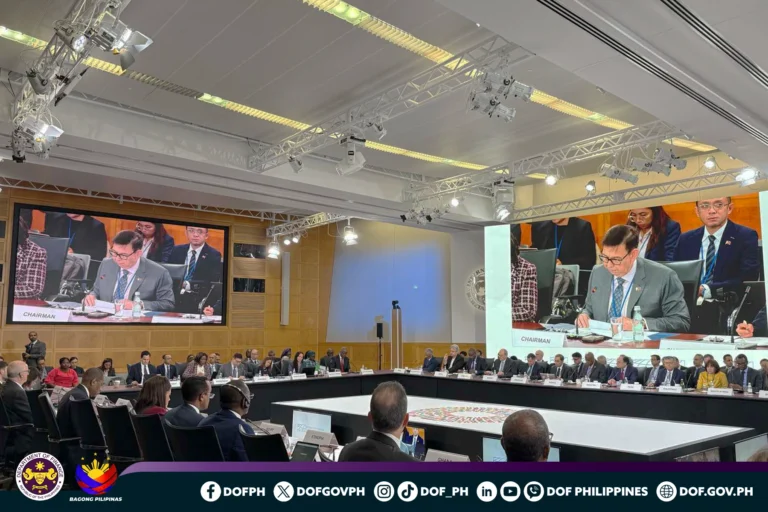Finance Secretary Carlos Dominguez III has assured members of the American Chamber of Commerce and Industry (AmCham) that the Duterte administration will continue to make the Philippines an attractive place for investments by encouraging a competitive environment to level the playing field for business.
In his meeting last Saturday with AmCham representatives, these American executives expressed their support for the government’s 10-point socioeconomic agenda as Dominguez told them that the Duterte administration “will make certain that the business environment is such that it encourages people to stay on.”
Dominguez said that “as far as business is concerned,” President Duterte “wants to have more competition and more innovation.”
The finance chief said that the new government is pursuing a policy of “economic diversification” to open more markets for Philippine products overseas, encourage more investments in the country, and create better-paying jobs for Filipinos.
Speaking on behalf of AmCham Philippines, Executive Director Ebb Hinchliffe said that the organization is “10o percent” behind the government’s 10-point socioeconomic agenda” and wants the Duterte administration to be successful in implementing its development programs.
“We, AmCham and all our members, we are in 100 percent support of the 10-point agenda. From AmCham’s standpoint, we want this administration to be successful. Can you imagine what a wonderful place this would be if we could get rid of crime, corruption and drugs? It will be an even better investment environment,” Hinchliffe said.
Dominguez thanked AmCham for supporting the government’s 10-point socioeconomic agenda, and asked the Chamber to help craft an action plan that would implement the reform plan’s goal on job creation.
“Can we focus on creating more employment? How do we translate that into an action plan? How do we create jobs and make sure they are good jobs and that people can rely on them, because jobs provide dignity to people,” Dominguez said, recognizing AmCham’s role in generating hundreds of thousands of jobs in various industries in the country.
In the hour-long meeting, AmCham members led by Hinchliffe mentioned President Duterte’s statements on Philippine-US relations, but informed Dominguez of their hopes for continued investment here.
In response, Dominguez said: “I have listened very carefully and we will make certain that the business environment is such that it encourages people to stay on. We encourage competition and we encourage obedience to the law.”
The finance secretary described his meeting with AmCham as a “frank and productive exchange of views.”
A day before Dominguez’s meeting with AmCham executives, US Secretary of State John Kerry said in Washington that the historic alliance between the US and the Philippines remains “ironclad’ despite recent differences.
“The United States continues to place high value on the close ties that exist between our countries,” Kerry said during a swearing-in ceremony for the new US ambassador to Manila, Sung Kim. “We continue to recognize our ironclad commitment to the sovereignty, independence and security of the Philippines.”
The AmCham members at the meeting included representatives from the fields of manufacturing, construction, electronics, mining, business process outsourcing, information technology, power, food processing, and agriculture.
Among them were key officials from Capital One, Cargill Philippines, Freeport McMoran, Philip Morris Fortune Tobacco Company, Optel, and AES Corp.
Elizabeth Magsaysay of the US-Asean Business Council was also present at the meeting.
AmCham is a private and non-profit association representing more than 700 companies. It is affiliated with the US Chamber of Commerce and the Asia-Pacific Council of American Chambers.
Earlier, Dominguez clarified before Philippine senators that the President is not changing Philippine foreign policy but merely “recalibrating” it.
He explained that the President’s recalibration of Philippine foreign policy would open the country to markets other than the traditional ones in the West.
“The President has indicated to us that he’d like to strengthen and exploit opportunities…in countries other than our traditional trading partners,” Dominguez said.
The finance chief said that before meeting with AmCham representatives, he had spoken informally with a US state department official, who encouraged the Philippines to have good relationships with its neighbors, including China and Japan.
“You know, we are in discussions with everybody. I think the new policy of the President is to open doors to all,” he said.
In previous public engagements, Dominguez has said that now is the best time to invest in the Philippines, given that the country’s economic fundamentals are its strongest, interest rates are at their lowest, inflation rates remain at benign levels, banks are teeming with excess liquidity and millions of young Filipinos will enter the workforce over the next few years.
Moreover, he said, the hard work of previous administrations has reduced the country’s debt to 40 percent of the Gross Domestic Product (GDP), allowing the government to free revenues to spend on its programs for inclusive growth.
The Philippines has also kept its investment-grade credit ratings that will help accomplish the goal of shifting from consumption- to investment-led growth, which, in turn, “will ensure our economic expansion will pace the rest of Asia,” Dominguez said.





